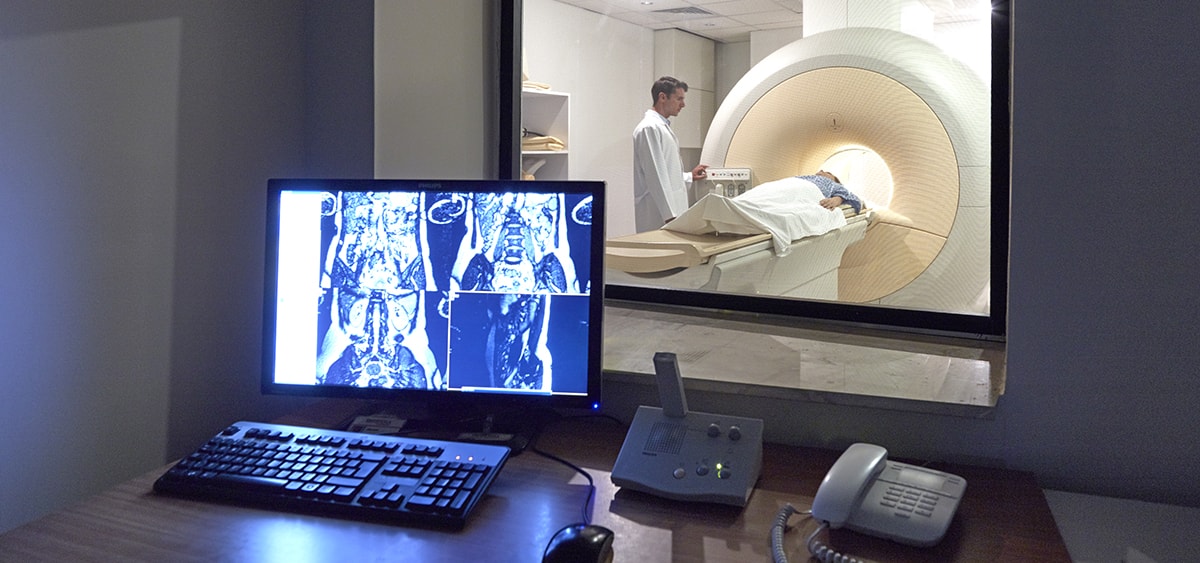Cancer Library
-

Vagus nerve stimulation (VNS) uses an implantable device to stimulate the vagus nerve in your neck. The electric impulse travels to your brain, where it’s dispersed to different areas to change the way brain cells work. VNS is sometimes called a “pacemaker for the brain.” VNS is approved to treat difficult-to-control epilepsy, depression and as a rehab aid for stroke.
-

People with pancreatic cancer may get their tumor removed with a surgery called the Whipple procedure. This inpatient, usually open surgery, often requires a week-long hospital stay and another four to six week recovery time. The procedure increases the survival rate for people with pancreatic cancer.
-

Yoga therapy is a mind-body practice that focuses on your physical, emotional and mental health. The practice uses movement, mindfulness, meditation, relaxation and breathing exercises to help you relax, relieve stress and manage underlying conditions or symptoms in addition to treatment by a healthcare provider.
-

Adults with rectal prolapse need surgery to put rectal tissue that slips into their anus back where it belongs. Rectal prolapse surgery (rectopexy) may take place through your abdomen or perineum (a perineal rectosigmoidectomy). Without surgery, rectal prolapse can worsen fecal incontinence and lead to more serious issues.
-

Robotic-assisted surgery enables you to receive sophisticated treatments with less downtime. It uses specialized technology to deliver precise care, even in hard-to-reach areas. Robotic surgery treats conditions affecting your heart, digestive system, bladder, prostate and more.
-

Sedatives are a broad class of prescription medications that slow your brain’s activity. Common types include benzodiazepines and barbiturates. Sedatives have several uses, ranging from treating anxiety and insomnia to anesthesia purposes. These medications have addiction potential, so they must be taken with caution.
-

Speech therapy helps children and adults improve their communication and language skills. No matter what’s affecting your ability to speak or communicate effectively, speech therapy can improve your quality of life. Talk to a healthcare provider about a speech therapy evaluation if you or your child has trouble talking, hearing or using language.
-

Steroid injections are a type of treatment that delivers a high dose of medication directly to a problem spot in the body. Corticosteroids can help reduce inflammation. Injections can be helpful in treating conditions like tendinitis or bursitis.
-

Stress can take a toll on your physical and mental well-being. It’s important to use stress management techniques like mindfulness, meditation, exercise and relaxation to reduce the effects of stress on your body. If you feel anxious or overwhelmed by stress, a therapist or healthcare provider can help.
-

If you have liver cancer, your treatment may include chemoembolization instead of surgery. This procedure involves injecting a combination of cancer-fighting drugs and an embolic agent into the tumor. Treatment cuts off the tumor’s blood supply with little or no effect on liver functioning.
-

Tympanoplasty is surgery to treat ruptured eardrums. If you have a ruptured eardrum, you have a hole in your eardrum that affects your ability to hear. Your healthcare provider may treat your ruptured eardrum with ear drops or antibiotics. If your eardrum doesn’t heal, your provider may perform tympanoplasty, accessing your eardrum and patching the hole.
-

Vaccines help prevent illness from viruses and bacteria. They train your body to fight harmful invaders by causing an immune response. They work by using live or dead pathogens, part of a pathogen or mRNA. Vaccines go through an extensive series of safety testing before being released to the public. Versions of vaccines have been used for centuries.
-

-

It is recommended to conduct prostate cancer screening based on PSA testing for men in good health with an expected life span of more than 10 years.
-

Early detection allows for early intervention, resulting in better prognosis.
-

Breast cancer, commonly known as the "pink killer," is a prevalent malignant tumor that poses a significant threat to women's health.
-

Palliative care aims to enhance quality of life and allow people to maintain their independence
-

Testing the effectiveness of particular medicines and treatments.
-

During your cancer journey you may hear about, or become interested in, complementary therapies. There are many therapies on offer and information about these can be confusing. The information below will help you to make informed and safe choices.
-

Surgery is one of the main treatments for cancer. It may be used by itself or with other cancer treatments.It's natural to feel nervous before surgery. Knowing what to expect, how to plan for surgery and the recovery process can help.